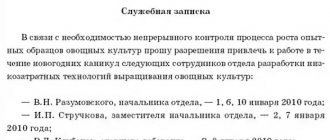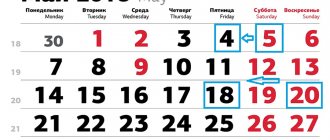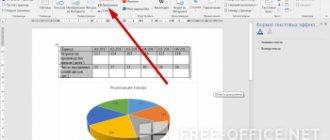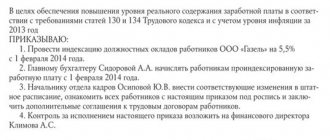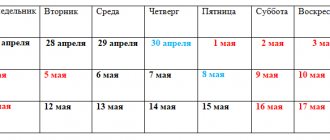Home / Labor Law / Payment and benefits / Wages
Back
Published: 01/12/2018
Reading time: 8 min
1
3659
The business trip is related to the employee’s performance of labor functions, so it is subject to mandatory payment. Certain peculiarities arise in this case if any of its days coincide with weekends.
We will determine what the payment procedure is and how the employee can be compensated for his lost day off.
- Rules for paying for business trips on weekends and holidays
- Payment procedure and calculation example
- How to take payment into account when calculating income tax?
- How to compensate an employee for a lost day off
Dear readers! To solve your problem, call hotline 8 or ask a question on the website. It's free.
Ask a Question
Where does it say about payment for a business trip?
The general rules for paying a posted employee for days off are regulated by the Labor Code and the Regulations on the specifics of sending employees on business trips, which was approved by Decree of the Government of the Russian Federation dated October 13, 2008 No. 749 (hereinafter referred to as the Regulations on Business Travel).
In particular, it says how to pay daily allowances and how to pay for work if the employee was at the place of business trip on a weekend or holiday. Compose HR documents using ready-made templates for free
How is a travel order prepared?
If a trip is arranged on a weekend, the employer will need to sign 2 types of orders:
- about sending on a business trip;
- about being hired to work on a day off.
Since there is no specific form for an order to work on a day off, each organization can develop a document independently, indicating in it:
Data regarding:
- employee (full name, job position);
- implementation dates on weekends;
- mandatory work on weekends;
- the employee’s consent to work outside of class hours;
- type of labor payment outside the schedule (increased payment or time off).
Reason for business trip, etc.
Taking into account the above, if a business trip falls on a weekend, it has its own characteristics not only in terms of its registration, but also payment, since the employee is paid an increased amount for the weekend worked.
Let's celebrate! Of no small importance is the fact whether weekends or holidays coincide with the first or last day of the work trip, since for these days payment is also provided at least double the amount.
Didn't find the answer to your question? Find out how to solve exactly your problem - call right now: +7 (Moscow) +7 (812) 407-26-30 (St. Petersburg) It's fast and free!
How to calculate daily allowance for weekends on a business trip
According to paragraph 11 of the Business Travel Regulations, per diem must be paid for each day of a business trip, including weekends and non-working holidays, as well as for days spent en route, including during a forced stop. Thus, the employee must receive daily allowance for each calendar day of the business trip, including the days he spent on the road when traveling to and from the business trip.
IMPORTANT. Each employer can set the amount of daily allowance that it considers necessary. In practice, the amount of daily allowance usually does not depend on what day it is paid for - a working day, a weekend or a holiday. This means that calculating daily allowances for weekends on a business trip is no different from calculating daily allowances for working days.
To determine how much the employee should receive, you need to multiply the amount of daily allowance established in the organization by the number of calendar days of the business trip, which starts from the day of departure and ends on the day of arrival.
The rules for determining the day of departure and day of arrival are established in paragraph 4 of the Regulations on Business Travel. The day of departure on a business trip is the date of departure of a train, plane, bus or other vehicle from the place of permanent work of the posted employee. The day of arrival from a business trip is the date of arrival of the specified vehicle at the place of permanent work. When a vehicle is sent before 24.00 inclusive, the day of departure for a business trip is considered the current day, and from 00.00 and later - the next day. The day the employee arrives at his place of permanent work is determined similarly.
How are you paid for working on weekends and non-working holidays?
Work on weekends and non-working holidays is subject to increased payment of at least double the amount.
Specific amounts can be established in the employment contract or in the internal documents of the employer. Payment is made for hours actually worked. If an employee did not work a full day or shift on a day off, the increased pay will be calculated in proportion to the actual time worked. For employees with a shift work schedule, if the work shift falls on a weekend, payment is made at the usual rate - in a single amount. If the shift coincides with a non-working holiday, payment is made at an increased rate.
How to calculate average earnings for weekends on a business trip
The Regulations on Business Travel do not directly say whether it is necessary to pay the average salary for weekends or holidays on which the business trip occurred. It is only stipulated that payment for a seconded employee if he is involved in work on weekends or non-working holidays is made in accordance with the labor legislation of the Russian Federation.
Automatically calculate the salary of a posted worker according to current rules Calculate for free
However, from this general phrase we can draw the following conclusion: it is necessary to calculate average earnings for weekends and holidays only if the person was actually involved in work on these days. This means that if an employee, while on a business trip, rests on weekends and holidays, then the average salary for these days is not paid to him.
If the employer decides that the posted worker must work every day, including on weekends, then he will have to pay for work on those days that are intended for rest. Moreover, in an increased (at least double) size. Or the employee must be given a day off for each day he worked on his day off (subject to his written application). Then the work itself on a day off is paid at a single rate (Article 153 of the Labor Code of the Russian Federation).
REFERENCE. According to Article 153 of the Labor Code of the Russian Federation, work on a weekend or a non-working holiday is paid at least double the amount. Specific amounts of payment for work on a specified day can be established by a collective agreement, local regulations, or employment contract.
Taking into account the above, the rule for paying for days off on a business trip is as follows: if the employee is resting on these days, no payment is made (average earnings are not calculated). If, by decision of the management, a posted employee works on a weekend or holiday, then this day must be paid at least double the amount, or, at the request of the employee, be given a day off (then work on a day off is paid at a single rate). Please note that it is more correct to pay for “working weekends” during a business trip not according to average earnings, but based on the remuneration system established for the employee - salary, tariff rate, etc. (Article 153 of the Labor Code of the Russian Federation, clause 9 of the Regulations on business trips).
Calculate “complex” salaries with coefficients and bonuses for a large number of employees
What should I do if my departure date falls on a weekend?
Often there is a need to be present at a temporary workplace on Monday morning. That is, the posted employee will have to leave in advance: on Saturday or Sunday. How do I pay for a business trip on a day off?
Payment for days off on a business trip can be made in two ways:
- Double payment.
- Single payment if the employee has expressed in writing a desire to take time off for that day.
In this case, daily allowances are paid strictly for the number of days that the trip lasted.
The previous version of the Resolution specified the maximum period during which an employee could be on official absence - 40 days.
After these days, if necessary, one business trip was closed and a new one was immediately opened by order. There are no such restrictions in current legislation: the duration of the business trip is determined by the organization.
In addition to the first case, when the road takes up a day off, it also happens that an employee is forced to spend the weekend away without returning home .
Are these days payable? The situation is similar here, only one nuance differs: whether or not the employee performed his official duties on those days.
If an employee was involved in this on a day off (and there is an order about this), then double payment or time off and single payment occurs. If the employee did not work that day, then such day is not subject to payment.
How to pay for days off while traveling
Accountants often have difficulty calculating average earnings for the weekends that a posted worker spent on the road. This situation can arise not only by the decision of management, who planned the employee’s trip in this way, but also unintentionally, for example, due to a flight delay or cancellation, employee illness, etc. Do days spent on the road count as work? Do I need to pay them double?
The Labor Code and the Regulations on Business Travel do not provide answers to these questions. Judges and officials believe that days of departure, arrival, as well as days en route during a business trip that fall on weekends or non-working holidays are paid in accordance with Article 153 of the Labor Code of the Russian Federation at least double the amount, unless the employee is given another day of rest. Such clarifications are contained in the decision of the Supreme Court of the Russian Federation dated June 20, 2002 No. GKPI2002-663, in letters of the Ministry of Labor of Russia dated October 13, 2017 No. 14-2/B-921, dated September 5, 2013 No. 14-2/3044898-4415 and dated December 25. 13 No. 14-2-337.
Thus, if an employee leaves for or arrives from a business trip, and is also on the road on a day off (according to the schedule of the sending organization), then this is regarded as being hired to work on a day off. This means that you need to pay for this day and provide time off, or pay double for work on this day. It is also more correct to pay for weekends on the road not according to average earnings, but based on the wage system established for the employee.
These provisions apply subject to the rules mentioned above for determining the day of departure and arrival. For example, if an employee left on a business trip on Friday and arrived at his destination no later than 24:00 on the same day, then the average earnings do not need to be calculated for Saturday and Sunday (unless, of course, he will work on these days as directed by management). But if a train (plane, bus) leaves the place of work or arrives at the place of business trip after 00.00 on Saturday, then you will have to pay for this day (with the provision of time off or at an increased rate).
ADVICE. If possible, plan your business trips so that your arrival and departure dates do not fall on weekends or holidays.
How to compensate an employee for a lost day off
Weekends are paid in the following cases:
- the employee is on a business trip;
- The travel time falls on a weekend.
Based on the Labor Code of the Russian Federation, the accounting department of the enterprise must pay the employee:
- in the amount of double salary;
- according to average earnings and provide an unpaid day or number of days in proportion to days off on a business trip.
To base payments, it is necessary to draw up an order, which will indicate the position and full name of the employee sent on a business trip, the place and time of deployment, and the reason for the trip. To avoid double situations, the enterprise should create an internal document that indicates the calculation of wages when an employee is on a business trip on a day off.
How to reflect weekends during a business trip in the report card
In the Timesheet, each calendar day of a business trip is marked with a special code (K or 06) without indicating the number of hours. This code is also indicated for the weekends on which the business trip occurred (remember that usually weekends are marked in the Timesheet with code B or 26).
ATTENTION. For a posted employee, codes B and 26 are not used in the Timesheet. If an employee worked on a business trip on a weekend or holiday, then for this day an additional code РВ or 03 is entered into the Timesheet. The number of hours of work is entered only if there is an order from the employer (at the main place of work) indicating the number of hours that this The employee must work on a specific weekend or holiday.
As for weekends (holidays) on which the employee was on the way to the place of business trip or back (including if the day of departure or arrival fell on a holiday or day off), they are marked in the Timesheet with the double code K/RV or 06/ 03 without specifying the number of hours.
Such explanations for filling out the Working Time Sheet are given in paragraph 2 of the letter of the Ministry of Labor of Russia dated February 14, 2013 No. 14-2-291.
Maintain timesheets and calculate salaries in the Vesti web service for free
Reflection of a business trip and time off for it in the report card
To record working time, a personnel specialist uses a special timesheet. It displays all information about weekends, vacations and business trips. To receive time off, it is necessary that the information be indicated on the report card.
Most often, being on a business trip is indicated by the letter “K” or the numbers “06”. Some organizations also use their own designations. But the time spent working on a business trip is not entered on the timesheet.
If a business trip falls on a weekend, it is usually indicated by the combination of letters “РВ” or otherwise. A code must also be entered indicating that the person was on a trip during the business trip. This provides grounds for receiving time off or additional pay. If there are no designations, then compensation will not be claimed.
It is important to understand that not all the days a person is on a business trip are working. If his work schedule has not changed (for example, he rests on weekends), then there will be nothing to compensate. In this case, all the employee is entitled to is per diem and reimbursement of living expenses.
Accounting for travel expenses
The fact that the business trip “occupies” weekends or holidays does not in any way affect the accounting procedure for the corresponding expenses incurred by the employer. Daily allowances accrued for weekends (including days en route, including the day of departure and day of arrival) are not subject to personal income tax and insurance premiums according to the same rules as daily allowances accrued for working days. Namely: they are exempt from personal income tax and insurance contributions up to 700 rubles. for each day of a business trip in Russia, and within 2,500 rubles. for each day of being on a foreign business trip (clause 3 of article 217, clause 2 of article 422 of the Tax Code of the Russian Federation).
The average earnings accrued for the weekends on which the posted employee was involved in work or was on the road (including the day of departure or arrival) are subject to personal income tax and insurance contributions in the same way as the average earnings accrued for weekdays (letter of the Federal Tax Service of Russia dated April 17, 2018 No. BS-4-11/ [email protected] ).
ATTENTION. For tax accounting purposes, the average earnings paid to a posted employee on weekends are regarded as wages.
For personal income tax purposes, the date of actual receipt of income in the form of average earnings paid for a day off on a business trip will be considered the last day of the month for which this income was accrued. The date of actual receipt of income in the form of daily allowances paid in excess of the non-taxable rate is the last day of the month in which the business trip report is approved. Tax must be withheld when paying (transferring) the corresponding amounts (subclause 6, clause 1 and clause 2, article 223, clause 4, article 226 of the Tax Code of the Russian Federation). Insurance premiums must be calculated simultaneously with the calculation of average earnings and excess daily allowances in accounting (clause 1 of Article 424, clause 1 of Article 421 of the Tax Code of the Russian Federation). The entire amount of payment for a business trip in 2020 is taken into account as part of expenses both under OSNO (clause 6 of Article 255, subclause 12, clause 1, Article 264 of the Tax Code of the Russian Federation) and under the simplified tax system (subclauses 6 and 13, clause 1 of Art. 346.16 Tax Code of the Russian Federation). In particular, this amount includes daily allowances for all days of the business trip. It also includes the average earnings for work on a business trip on weekends and holidays and for the time spent on the road on these days. The basis for writing off costs will be the Time Sheet and business trip documents.
What is a business trip?
Typically, a business trip is the sending of an employee of an enterprise for a certain period of time to perform some task in another division of the company or another place. There is a document regulating this circumstance. This is Decree of the Government of the Russian Federation No. 749 as amended on July 29, 2015.
Typically, travel days are counted from the time the vehicle departs and ends with its return. Business travel is considered to be the days between the date of departure and arrival. In the absence of tickets certifying travel, the start date is considered from the moment of check-in at the hotel or drawing up a rental agreement for residential premises . At a temporary place of work, the start and end dates of work must be recorded, and in the absence of other documents confirming the terms of the business trip, the countdown is based on them.
It is important to note that travel and accommodation are usually paid for by the employer. And also for the entire period of the trip, the salary of the posted worker is maintained. All cash payments provided for during the trip are made in the currency of the country to which the employee was sent.
After arrival, the employee must submit a documented report to the HR department or management team within 3 working days Documents that need to be provided:
- A complete advance report of all expenses.
- Residential rental agreement.
- Travel tickets or documents certifying it.
- Documentary evidence of expenses related to business travel expenses.
What if you are leaving on a business trip on a weekend?
This often happens when you need to be at a business trip on Monday morning. Therefore, the departure date falls on Saturday or Sunday. There are two calculation options: double or single, with a written request from the employee to use time off on this date. Daily allowances are calculated only for those days during which the business trip lasted.
It happens that a business trip is delayed, and the employee has to be away from home on weekends. Payment in this case occurs only if the employee worked on these days, which is officially certified in the form of an order. Then the calculation is made in double amount or time off and a single payment are taken.


